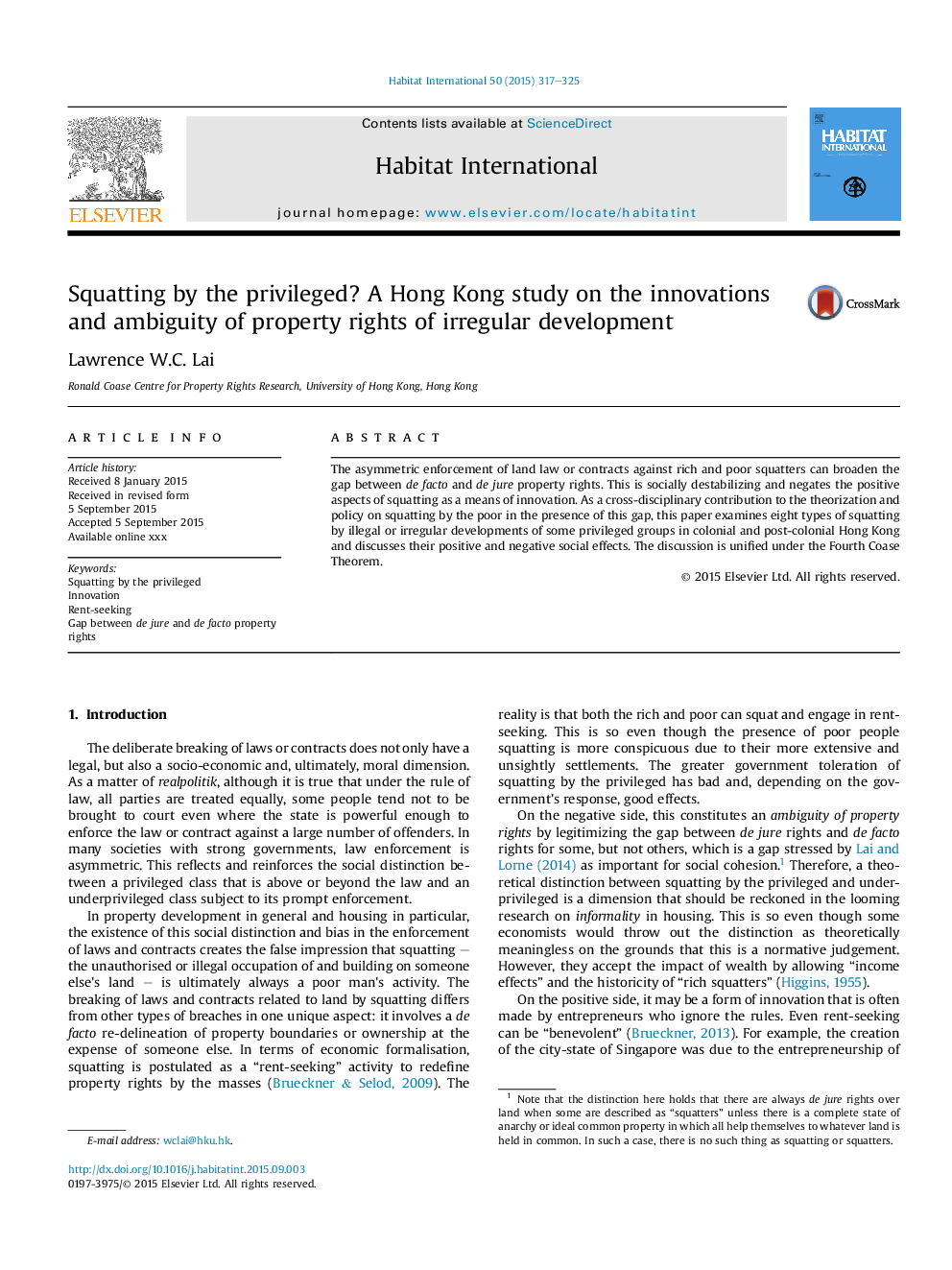| Article ID | Journal | Published Year | Pages | File Type |
|---|---|---|---|---|
| 7455984 | Habitat International | 2015 | 9 Pages |
Abstract
The asymmetric enforcement of land law or contracts against rich and poor squatters can broaden the gap between de facto and de jure property rights. This is socially destabilizing and negates the positive aspects of squatting as a means of innovation. As a cross-disciplinary contribution to the theorization and policy on squatting by the poor in the presence of this gap, this paper examines eight types of squatting by illegal or irregular developments of some privileged groups in colonial and post-colonial Hong Kong and discusses their positive and negative social effects. The discussion is unified under the Fourth Coase Theorem.
Keywords
Related Topics
Social Sciences and Humanities
Social Sciences
Development
Authors
Lawrence W.C. Lai,
